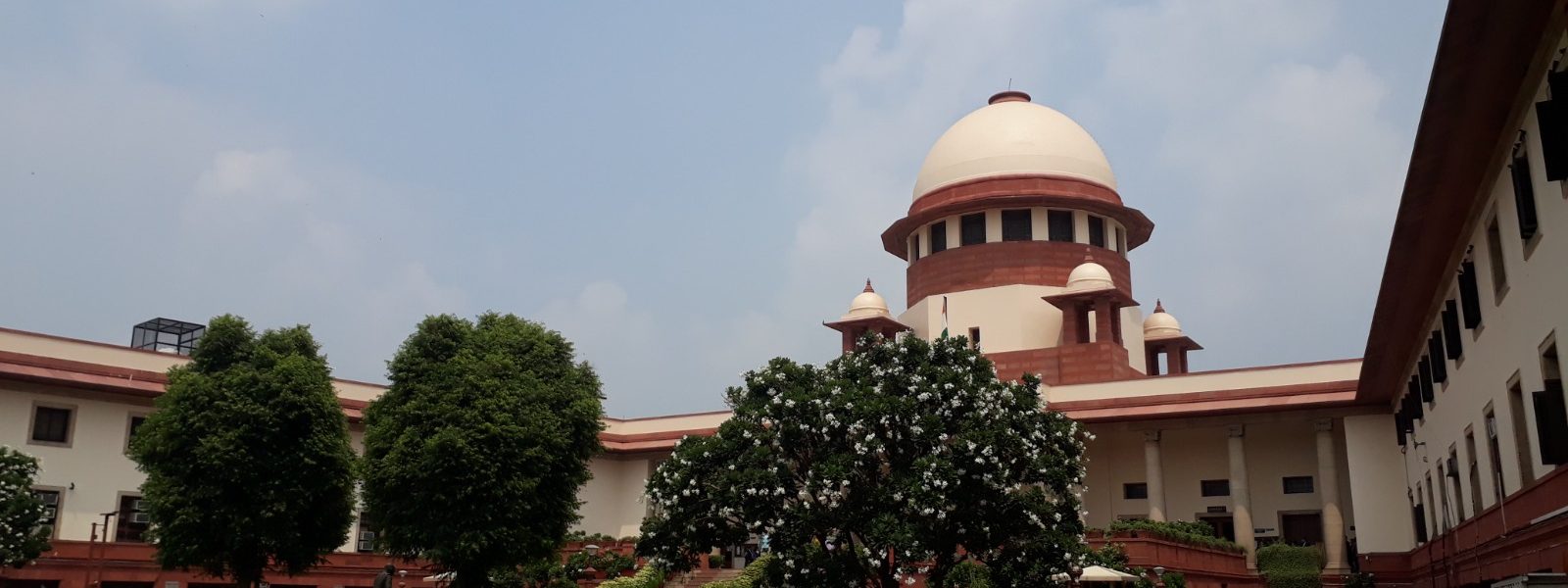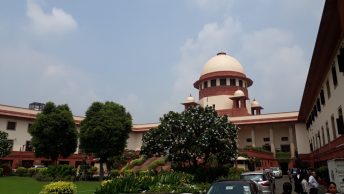The Courts and Constitution is an annual conference organized by NALSAR University of Law, Azim Premji University, and the Law and Other Things Blog, highlighting recent developments in the field of public law. Every year, the Conference aims to bring together diverse viewpoints on public law and constitutional issues that have a long-term impact on governance and the rights of the citizenry.
The keynote address during the inaugural forthe fifth edition of this Conference was given by Justice B. V. Nagarathna (Judge, Supreme Court of India). Justice Nagarathna noted how the judicial process must withstand the scrutiny of the citizenry and conferences such as this are key to discussing the concerns of constitutional law. Noting how the Supreme Court has just completed 75 years since its inception, she reflected on the judicial journey in realizing constitutional ideals. To that end, Justice Nagarathna presented an overview of key judgements of the past year, which adjudicated contentious public issues like demonetisation, sealed cover jurisprudence, marriage equality, reproductive rights, and electoral bonds, among others. She cautioned against instances of governors sitting on bills passed by popularly elected legislatures indefinitely, referring to the case involving the Governor of Punjab, and reiterated the high constitutional nature of the Governor’s office. She also highlighted the Maharashtra Legislative Assembly case as another instance of gubernatorial overreach, where the governor lacked sufficient material to declare the floor test. She concluded the address by noting how the strength of the judiciary emerges from their role in dispensing justice and how one needs to re-dedicate themselves to the Constitution, with the belief that the Constitution is everlasting and enduring.
The inaugural continued with remarks by eminent dignitaries such as Justice Sapana Pradhan Malla (Judge, Supreme Court of Nepal) and Justice Syed Mansoor Ali Shah (Judge, Supreme Court of Pakistan). Justice Malla noted how conferences such as this allowed for crucial interaction between the judiciary, practitioners, legal scholars and the student community. She noted how the role of the judiciary in protecting constitutions is crucial, especially given the various political factions and frictions in society. Importantly, she cautioned against ignoring the pressures and threats that currently face the judiciary, including political forces, and media trials. She concluded that the strength of democracy lies in the strength of its institutions, including its judiciary.
Justice Shah in turn spoke about how comparative constitutional law is of particular importance, since judges often rely on foreign jurisprudence, learning new ideas, interpretative tools and ways of approaching legal tools to enhance judicial reasoning. He examined how this can help enhance international cooperation and promote just outcomes.
The session saw further remarks by Justice Alok Aradhe (Chief Justice, High Court of Telangana and Chancellor, NALSAR), Professor Srikrishna Deva Rao (Vice-Chancellor, NALSAR), and Justice S. Ravindra Bhat (Former Judge, Supreme Court of India and Chair of Comparative Constitutional Law Studies, M. K. Nambyar SAARC Law Centre for Advanced Legal Studies, NALSAR). Justice Bhat noted how re-examining our constitutional norms enables the judiciary to keep pace with a dynamic society, and carve new norms and interpretations where necessary.
Over two days, the Conference saw six panels. The first panel, titled “Electoral Laws and Democratic Legitimacy” discussed various issues concerning electoral laws that have gained traction over the last year, including the electoral bonds scheme, appointment processes for election commissioners, and anti-defection laws. The second panel on “Developments in Indian Federalism” focussed on the Supreme Court’s decisions in the case regarding Article 370, and explored themes such as asymmetric federalism in the Indian context. The third panel went beyond our boundaries to review the adjudication of socio-economic rights across SAARC countries. It discussed the lack of explicit constitutional protection for socio-economic rights in such jurisdictions and the role of the judiciary in realizing rights such as the right to education or housing.
The second day of the Conference began with a panel which focussed on issues relating to judicial administration. This fourth panel, titled “Taking Stock of the Judiciary” moved beyond viewing the judiciary as comprising only individual decisions and examined the working of the institution as a whole, including issues such as the lack of transparency in the listing of cases before specific benches, the wide discretion in scheduling constitutional matters, and the system of having multiple benches, among others. The fifth panel on “Developments in Equality Jurisprudence” analyzed the evolution of equality jurisprudence in India by reviewing recent landmark rulings, such as the Supreme Court’s decision in the marriage equality case. Through this, the panel evaluated the Court’s success in crafting a vision of substantive equality that can protect the rights of individuals from diverse forms of discriminatory practices.
The Conference included a sixth panel on “Disability and Law” in memory of Professor Shamnad Basheer, who devoted his life to making the legal profession accessible. He founded “Increasing Diversity by Increasing Access” (IDIA), which aims at making legal education accessible for marginalized groups in society. In contrast to previous panels, this brings together IDIA scholars from various backgrounds, such as law firms, in-house counsel, students, and academics in the field of disability law, to share their perspectives on improving accessibility within legal education and the judiciary in India.
The Conference concluded with a book discussion by Arvind Narrain and Sitharamam Kakarala, based on the recently published volume, “Of Law and Life: Upendra Baxi in Conversation With Arvind Narrain, Lawrence Liang, Sitharamam Kakarala and Sruti Chaganti”. Each of these has, in turn, been reported further in subsequent parts of this series.
Written by: Saranya Ravindran


